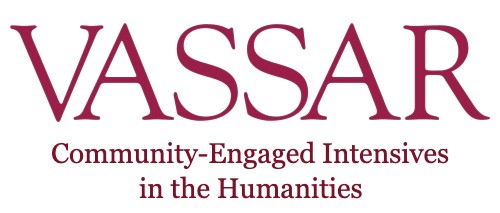Community Schools Research and Practice. | Our Lives, Our World. Teaching and Learning About Human Rights Alongside Youth. | Intersections of Our Homes, Schools and Communities (Spring 2022) | Intergroup Dialogue on Race and Migration (Fall 2021) | MakerBoards: A Return to Play | Intersections of Our Homes, Schools and Communities | French Language Lessons (Spring 2021)| Legal Challenges: Local Interventions in the Criminal-Legal System | Life in a Buddhist Monastery | Writing Medicine | Fundamentals of Grant Writing (Fall 2020) | Music for Empowerment | Intergroup Dialogue on Race and Migration. (Spring 2020)| French Language Lessons (Spring 2020) | Fundamentals of Grant Writing (Spring 2020) | Class Without Walls in Nature
[EDUC] 261, Intergroup Dialogue on Race and Migration, Fall 2021
INSTRUCTOR: Prof. Kimberly Williams Brown
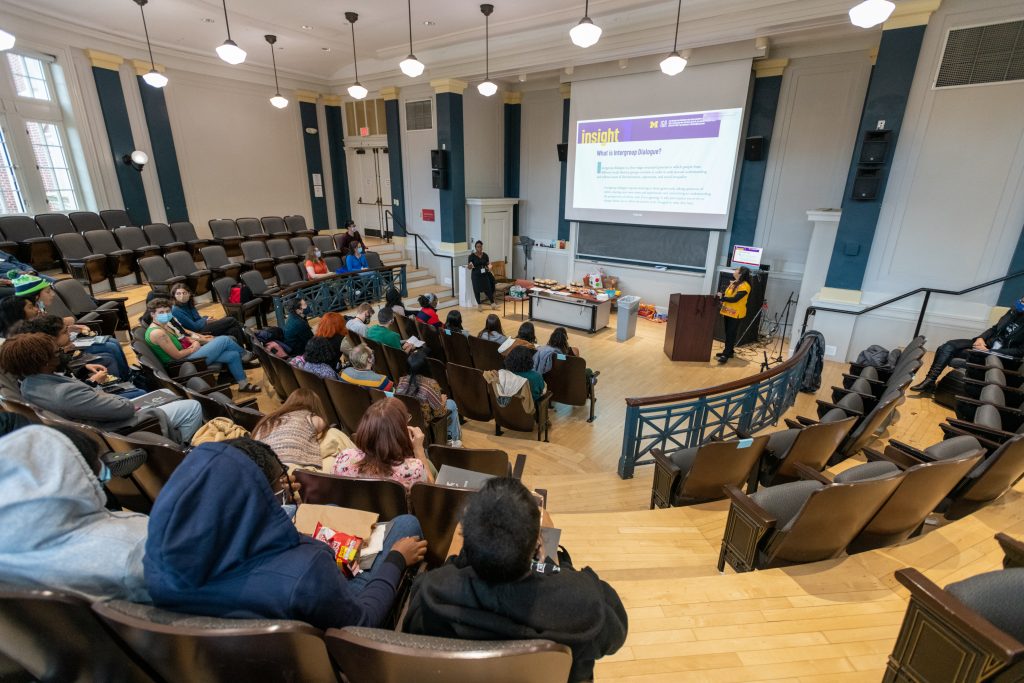
Vassar College and visiting high school students in an intensive class Wednesday November 3, 2021, in the Town of Poughkeepsie, N.Y. [Photo by Karl Rabe]
In this course, students will learn about, participate in, and critically reflect on intergroup dialogue with the intention of examining power and power structures in our experiences and the world around us concerning race and migration. Intergroup dialogue is an educational model that brings together students from multiple social identity groups in a cooperative, small group, learning environment. Intergroup dialogue often involves members of groups with a history of conflict or limited opportunities to engage in deep and meaningful discussion of controversial, challenging, or divisive issues. The goals of intergroup dialogue include: (1) understanding group beginnings and relationship building; (2) understanding social identities and the role of social structures, power, privilege, and institutions in creating and maintaining inequality; (3) developing intergroup and other communication skills; and (4) planning and enacting collaboration.
The course is organized around multi-disciplinary readings (e.g., historical, sociological, feminist, psychological, and personal narratives), experiential learning activities, weekly writing and summative reflections on race and migration.
Students will engage in dialogue practice. The format will be announced in class. The overall goal is to create a setting for students to engage in open and constructive dialogue concerning issues of intergroup relations, as well as how to talk about race and migration.
DEVELOPMENT TIMELINE:
The course was previously offered in Spring 2020. The instructor and co-instructor met weekly between July – August 2021 to discuss extending this course from a 6 week format to a semester format.
OCEL’S ROLE:
PARTNER:
Poughkeepsie High School (POK); Arlington High School (ACSD)
FORMAT:
Met Mondays and Wednesdays 75 minutes each time. One course meeting was conference style in which we hosted Poughkeepsie High School and Arlington High School students for an afternoon of Near Peer dialogue.
NUMBER OF STUDENTS: 20
CREDIT VALUE: 1.0 unit
FUNDS REQUESTED FOR:
- Course instruction materials
- Co-instructor honorarium
- Photographer fees
REFLECTIONS:
STUDENT REFLECTIONS
“ A willingness to listen with intent; listening is a skill, and this class helped that; Resonance as a tool for uniting. Resonating has become something I use everyday; The value of constant reflection. Even after we stopped doing Critical Reflections, they’ve become something I do on my own time.”
“I gain knowledge about the importance of migration in addition to race in everyone’s racial identities/journeys. I gained skills on co-facilitation & contributing to dialogue in class.”
“I am much more aware of how my presence affects others. I also think I am better able to participate in discussions that connect people from different identities. I also know more about systems of racism which I was aware of before, but now have words to describe them instead of broad generalizations.”
“Adapting to situations, the concept of facilitating intergroup dialogue and how difficult it can be.”
“The importance of speaking our truth as POC and not being afraid to enter a space. We have knowledge and we are valid no matter what we have been told in the past.”
“Critical thinking; intentional listening; deeper understanding and awareness of my positionality”
“I gained a lot of courage to use my voice. I also learned how to listen with openness – and to not hold people to what they have said, to witness and celebrate growth.”
“I think I was already a good listener, but I definitely got better at assessing what is valuable to the discussion and what takes up space.”
“Definitely learned a lot about collaboration and group dynamics.”
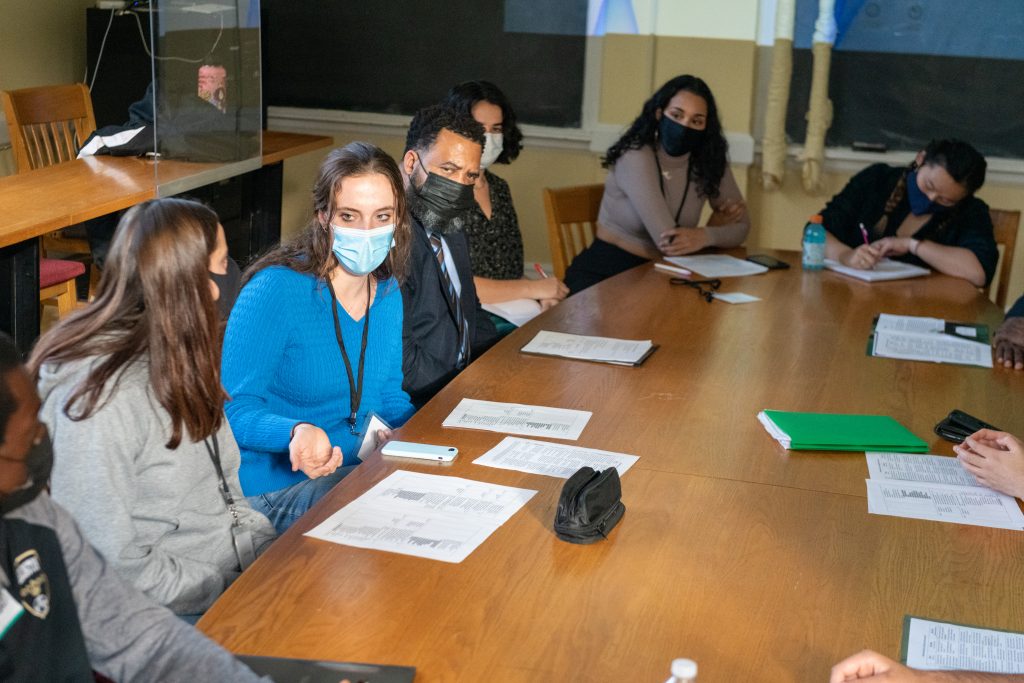
Vassar College and visiting high school students in an intensive class Wednesday November 3, 2021, in the Town of Poughkeepsie, N.Y. [Photo by Karl Rabe]
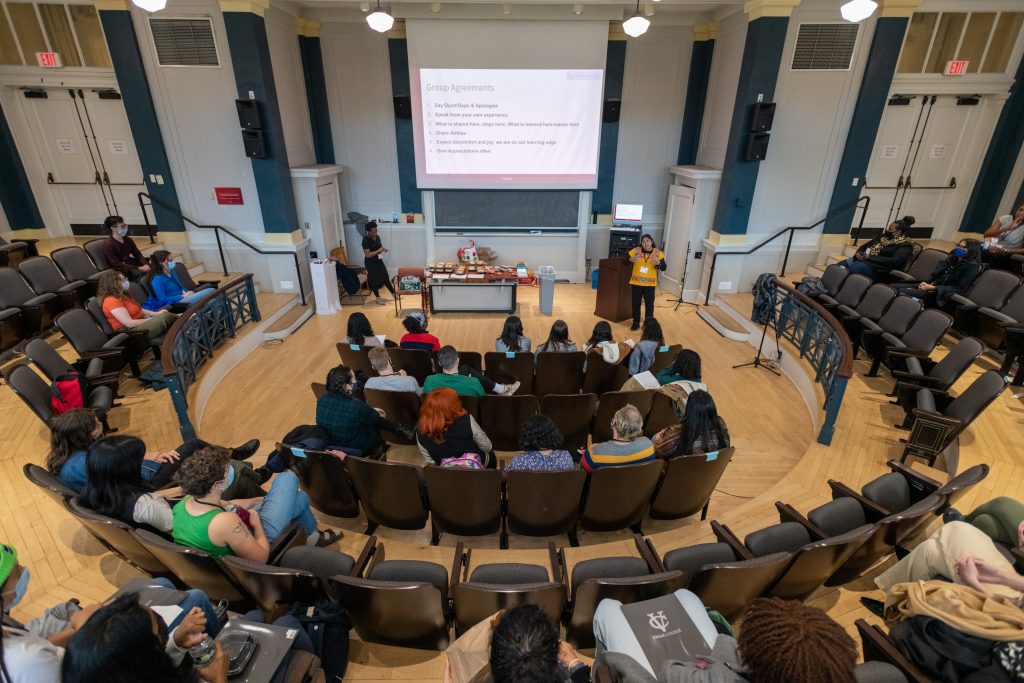
Vassar College and visiting high school students in an intensive class Wednesday November 3, 2021, in the Town of Poughkeepsie, N.Y. [Photo by Karl Rabe]
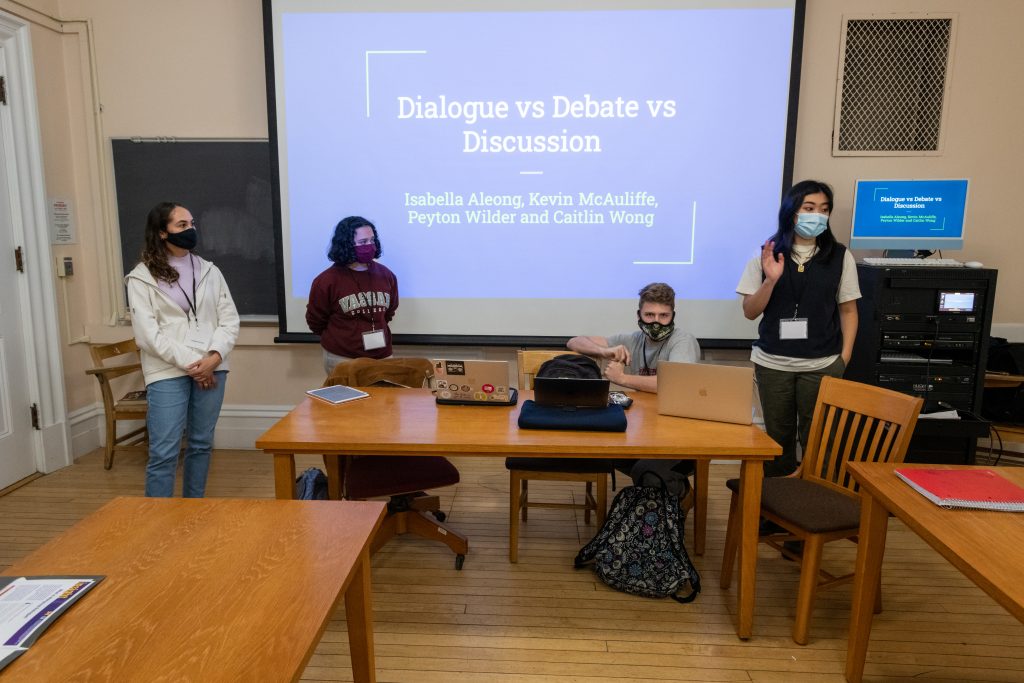
Vassar College and visiting high school students in an intensive class Wednesday November 3, 2021, in the Town of Poughkeepsie, N.Y. [Photo by Karl Rabe]
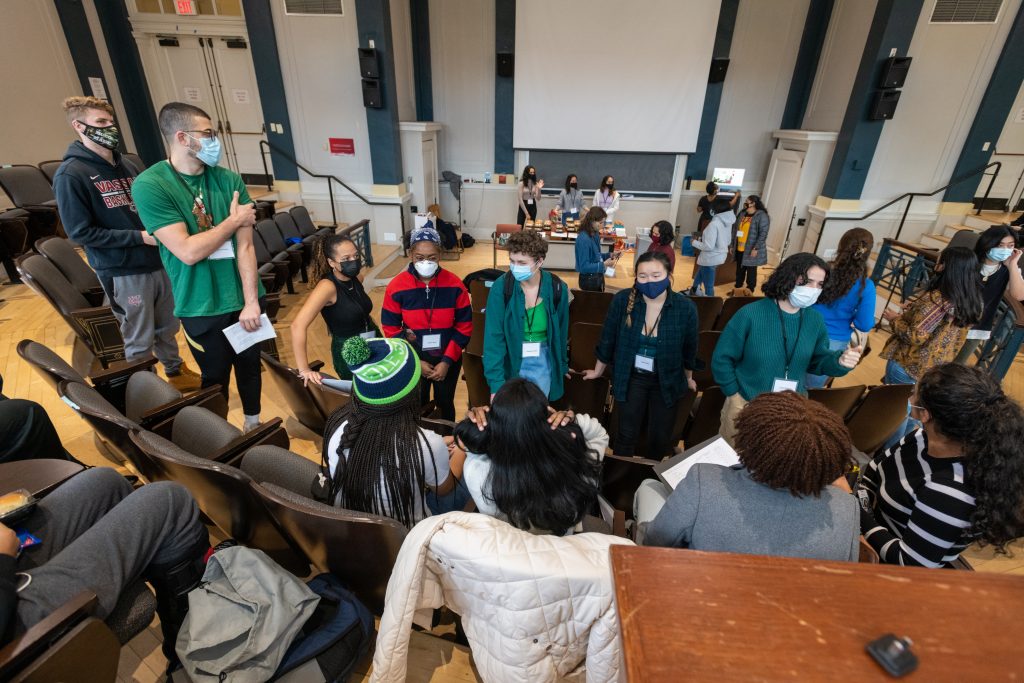
Vassar College and visiting high school students in an intensive class Wednesday November 3, 2021, in the Town of Poughkeepsie, N.Y. [Photo by Karl Rabe]
Click on the next page for more intensives
